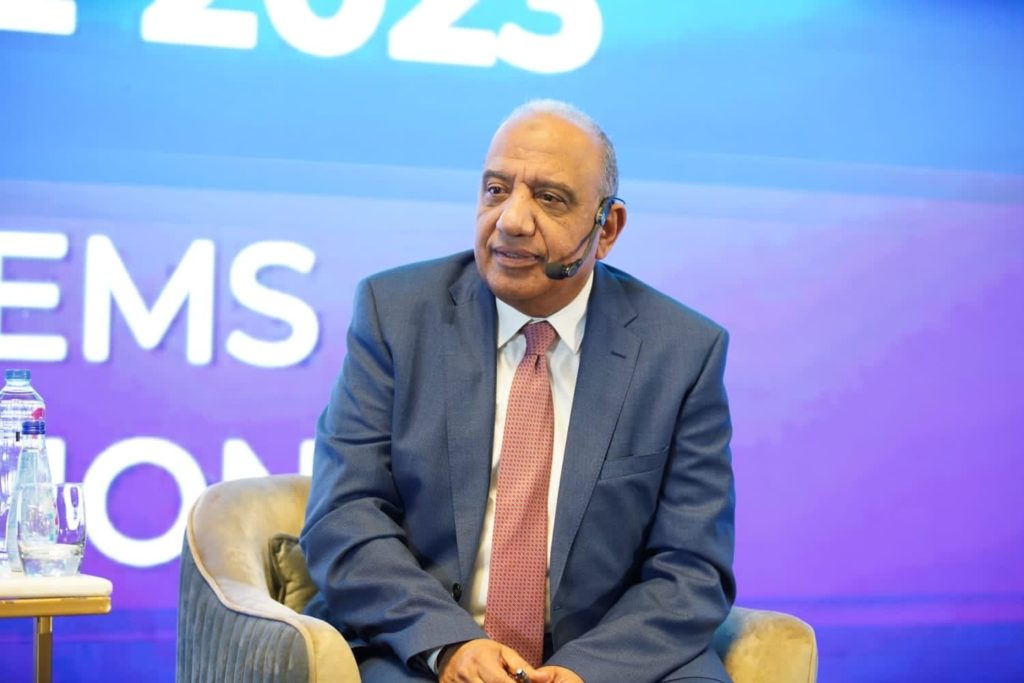Cairo – Egypt’s Ministry of the Public Enterprises Sector completed the investment roadmap for its companies, which are expected to be offered to investors, either directly to large individual investors, or through the Egyptian Stock Exchange (EGX), in the current year as part of the public offerings program announced by the Egyptian government.
The Egyptian prime minister, Mostafa Madbouly, announced over 20 companies would be offered. The initiative’s goal is to allow the expansion of new production lines and increase the market capitalization of existing companies, thus, fostering new job opportunities in the North African Arab nation.
Mahmoud Esmat, Egypt’s Public Enterprises Sector Minister (pictured above), said the investment portfolio includes seven holding companies, 75 affiliated societies, and 263 joint ventures. They operate in construction, real estate development, tourism, manufacturing, trade, non-banking financial services, and 34 other economic fields, with assets worth EGP 208 billion (about USD 6 billion at the current rate).
Esmat added last year’s profits of companies affiliated with the ministry amounted to EGP 13.5 billion (about USD 445.6 million), thanks to the reform and reorganization program and strategy to modernize the industry sector and expand exports within the framework of the State Ownership Policy Document. The document was devised to outline the state policy regarding its assets and guide future operations in the area.
The minister explained the investment roadmap for state-owned companies was drawn up strictly under the State Ownership Policy Document to determine the sectors to be included in whole or in part, the projects to be offered to the private sector, and the means of participation.
Esmat said a model was designed and presented to the private sector through the ministry and its affiliated companies, by commercial partners such as the Start initiative, launched by the government to develop local industry, the Sovereign Fund of Egypt (TSFE), and other ministries and authorities involved. The model includes projects and studies related to companies, their location, and financial return, both for the State and the private sector.
The minister expressed that the strategy of increasing company efficiency mentioned in the government’s public tender program will soon be completed, either in the first phase, in the first half of this year, or in the second phase, to begin in July. The process occurs amid the implementation of the efficient asset management program, its proper use, and the maximization of its results, especially when it comes to unexploited assets.
He referred to introducing new industries and growing existing strategic segments in line with the State’s expansion plans, supporting local manufacturing, and transferring modern technologies to the country.
The annual report of the ESX, of which the Brazil-Arab News Agency (ANBA) obtained a copy, predicted eight companies would be listed on the exchange this year, including six linked to oil and energies: Alexandria Mineral Oils Co. (AMOC), Sidi Kerir Petrochemicals Co. (SIDPEC), Engineering for the Petroleum & Process Industries (ENPPI), Assiut Oil Refining Company (ASORC), Middle East Oil Refining Company (MIDOR), and Egyptian Methanex Company (E-Methanex), the latter for methanol production.
A report by the International Monetary Fund (IMF) indicated Egypt intends to sell assets worth USD 2 billion this year to help the country in its foreign exchange market.
Translated by Georgette Merkhan & Elúsio Brasileiro




